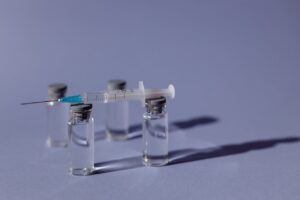
A global immunology company dedicated to enhancing the lives of individuals grappling with severe autoimmune conditions has unveiled its intention to propel the development of efgartigimod into Phase 3 for adults diagnosed with primary Sjogren’s disease (SjD), following an in-depth analysis of topline data from the Phase 2 RHO study. Elaborate findings will be disclosed at an upcoming medical symposium.
Dr. Luc Truyen, the Chief Medical Officer of argenx, expressed enthusiasm about the advancement of efgartigimod in treating Sjogren’s disease, citing the comprehensive data derived from the RHO study. He underscored the confirmation of their IgG biology hypothesis and highlighted the demonstrated clinical efficacy across various metrics, underscoring the significant unmet need for alternative therapies in this patient population.
The decision to progress with efgartigimod’s clinical development in SjD was underpinned by the favorable safety, efficacy, and biomarker outcomes from the study. The observed safety profile remained consistent with previous trials, while efficacy assessments indicated a notable treatment effect across multiple clinical endpoints, aligned with biomarker data.
The Phase 2 RHO study adopted a randomized, double-blinded, placebo-controlled multicenter approach to assess the safety and efficacy of VYVGART in adults with SjD. Noteworthy endpoints included the Composite of Relevant Endpoints for Sjogren’s Syndrome (CRESS), encompassing systemic disease activity, patient-reported outcomes, tear and salivary gland function, and serology.
Sjogren’s Disease (SjD) is a chronic autoimmune condition characterized by immune-mediated destruction of exocrine glands, often leading to debilitating symptoms such as dry eyes and mouth, fatigue, joint pain, and impaired cognitive function. Despite the prevalence of anti-Ro and anti-LA IgG autoantibodies, the precise etiology of SjD remains multifactorial, contributing to challenges in diagnosis and management.
Efgartigimod, an antibody fragment designed to mitigate pathogenic immunoglobulin G (IgG) antibodies, holds promise in addressing autoimmune diseases mediated by these antibodies. It is currently under investigation for various conditions, including neuromuscular disorders and skin blistering diseases, in both intravenous and subcutaneous formulations. Marketed as VYVGART®, it has already been approved for certain autoimmune conditions in numerous regions globally.
In conclusion, the progression of efgartigimod into Phase 3 for primary Sjogren’s disease marks a significant step forward in addressing the unmet needs of patients grappling with this challenging autoimmune condition, offering hope for improved treatment outcomes and quality of life.




